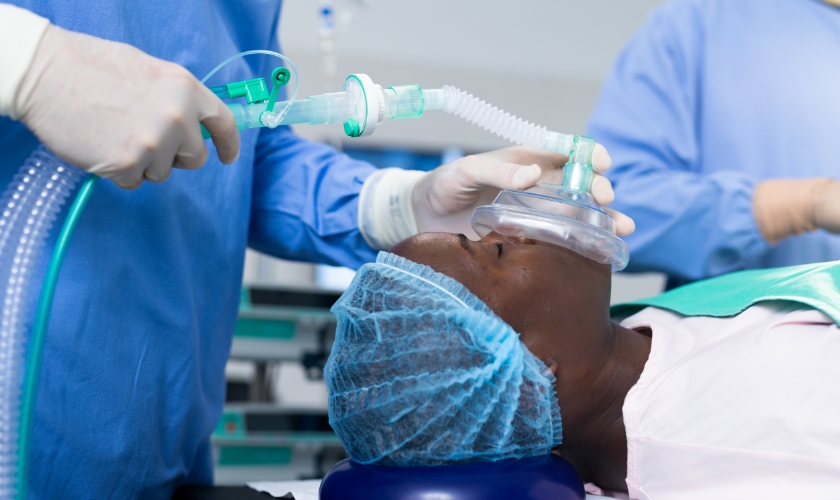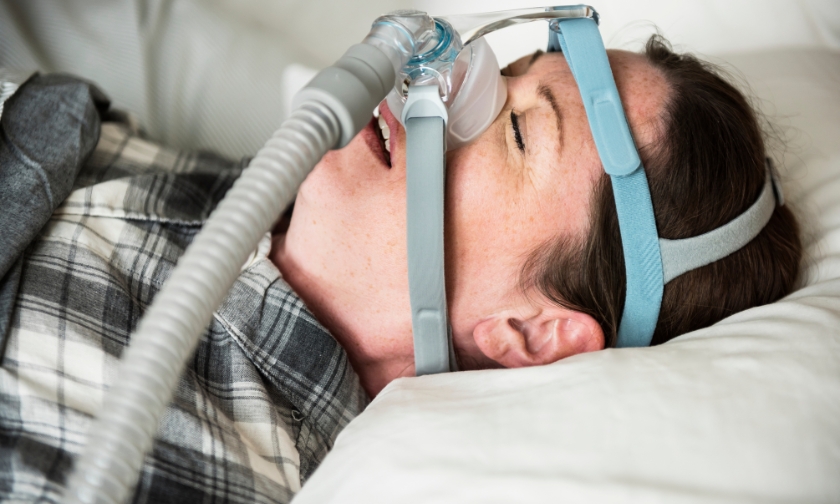A Comprehensive Guide For General Anesthesia for Dental Surgery in Spokane Valley, WA

What is General Anesthesia?
General anesthesia is a medically induced state of unconsciousness that prevents you from feeling pain during surgery. It’s a combination of medications that relax your muscles, suppress your reflexes, and block your awareness of pain.
How does it work?
Anesthesia works by affecting your central nervous system, specifically the brain. The medications used can be administered through:
- Intravenously (IV): The drugs are injected directly into a vein.
- Inhalation: You breathe in anesthetic gases through a mask.
General Anesthesia vs. Sedation Dentistry vs. Local Anesthesia
It’s essential to understand the differences between these terms:
- General anesthesia: You are completely unconscious.
- Sedation dentistry: You are relaxed but conscious. There are different levels of sedation.
- Local anesthesia: Only a specific area of your body is numbed.
Who Administers General Anesthesia?
A trusted anesthesiologist administers general anesthesia. They are medical doctors with specialized training in pain management and anesthesia. They carefully monitor your vital signs throughout the procedure to ensure your safety. The cherry on top will be if the anesthesiologist is flexible and gives personalized treatment for each patient.
When is General Anesthesia Necessary?
General anesthesia is typically reserved for complex or extensive dental procedures. While sedation dentistry in Spokane Valley, WA, might suffice for simpler treatments, certain cases require the deeper level of unconsciousness provided by general anesthesia.
Types of Dental Procedures Requiring General Anesthesia:
- Complex Oral Surgery: Procedures like jaw reconstruction, multiple tooth extractions, or dental implant placement often necessitate general anesthesia due to their invasiveness.
- Patients with Severe Dental Anxiety: For individuals with extreme fear of dental procedures, general anesthesia can be a safe and effective option to manage anxiety in Spokane Valley, WA.
- Children and Individuals with Special Needs: General anesthesia for dental treatments might benefit children who are unable to cooperate or individuals with certain medical conditions.
Benefits and Drawbacks:
Benefits:
- Pain-free experience
- Complete relaxation and lack of awareness
- Suitable for complex and lengthy procedures
Drawbacks:
- Requires a specialized medical team
- Involves additional risks compared to other anesthesia options
- Recovery time is generally longer
It’s crucial to discuss the potential benefits and risks of general anesthesia with your Spokane Valley dentist to determine if it’s the right choice for your specific dental needs.
The General Anesthesia Process in Spokane Valley
Preparation for General Anesthesia
Before undergoing general anesthesia in Spokane Valley, WA, it’s essential to prepare your body to minimize risks.
- Medical History Review: Your personable anesthesiologist in Spokane Valley will conduct a thorough review of your medical history, including any allergies, medications, and existing medical conditions.
- Fasting Requirements: You’ll likely be instructed to fast for a certain period before the procedure. This helps prevent complications during surgery.
- Medications to Avoid: Some medications may interact with anesthesia, so it’s crucial to inform your dentist in Spokane Valley, WA, about all the drugs you’re taking.
The Anesthesia Process
This involves several steps:
- Administration Methods:
- Intravenous (IV) anesthesia: The anesthetic is injected directly into a vein, causing you to fall asleep quickly.
- Inhalation anesthesia: You breathe in anesthetic gases through a mask. This method is often used for children.
- Monitoring During the Procedure: Throughout the surgery, your anesthesiologist carefully monitors your vital signs, including heart rate, blood pressure, oxygen levels, and breathing.
Recovery from General Anesthesia
After the dental procedure, you’ll be taken to a recovery area to wake up from the anesthesia.
- Post-operative Care: You may experience some grogginess or nausea as the anesthesia wears off. Your dental team will provide post-operative instructions to ensure a smooth recovery.
- Recovery Time: The duration of recovery varies depending on the type of procedure and individual factors. It’s essential to arrange for someone to drive you home as your reflexes might be impaired.
Risks and Complications
While it is generally safe, it’s essential to be aware of potential risks and complications.
Potential Risks of General Anesthesia
- Common Side Effects: These are typically mild and temporary, including nausea, vomiting, sore throat (from the breathing tube), chills, and headache.
- Serious Complications: Although rare, serious complications can occur. These may include allergic reactions, heart problems, breathing difficulties, and awareness during surgery.
Minimizing Risks
- Importance of Medical History Disclosure: Providing accurate and complete information about your medical history helps your anesthesiologist assess your risks and develop a safe anesthesia plan.
- Role of the Anesthesiologist: A personable anesthesiologists are trained to manage potential risks and complications. They continuously monitor your vital signs during the procedure to ensure your safety.
When to Seek Emergency Care
If you experience any of the following symptoms after surgery, seek immediate medical attention:
- Difficulty breathing
- Chest pain
- Severe or persistent nausea or vomiting
- Unusual bleeding
- Signs of an allergic reaction (rash, hives, swelling)
It’s important to remember that most people undergo local anesthesia without experiencing serious complications. However, being informed about potential risks can help you feel more prepared.
Choosing a Dental Provider
Selecting the right dental provider for a procedure requiring local anesthesia is crucial. Consider these factors when making your decision:
Factors to Consider When Choosing a Anesthesiologist in Spokane Valley, WA:
- Experience with General Anesthesia: Look for a dentist near you with extensive experience in administering general anesthesia for dental procedures.
- Accreditation and Certifications: Ensure the dental practice is accredited and that the dentist and anesthesiologist have the necessary certifications.
- Patient Reviews and Testimonials: Reading feedback from previous patients can provide valuable insights into the dental practice’s reputation and patient care.
Importance of Communication:
Open and honest communication with your dentist is essential.
- Asking Questions About the Anesthesia Process: Don’t hesitate to ask your dentist detailed questions about the anesthesia process, potential risks, and recovery expectations.
- Understanding Treatment Plans: Discuss your treatment plan thoroughly, including the reasons for recommending local anesthesia, alternative options, and potential outcomes.
By carefully selecting a dental provider and maintaining open communication, you can feel confident in your decision and ensure a positive experience.
Final Words
In summary, a flexible and personable anesthesiologist in Spokane Valley, WA, is an invaluable asset to any healthcare team. Their ability to adapt to changing circumstances, coupled with their capacity to build rapport with patients, contributes significantly to a positive patient experience. By fostering a calm and reassuring environment, these anesthesiologists help alleviate patient anxiety and improve overall surgical outcomes. Their interpersonal skills also enhance communication and collaboration among healthcare providers, optimizing efficiency and patient safety. Ultimately, a flexible and personable anesthesiologist is more than just a medical professional; they are a compassionate caregiver who plays a vital role in the well-being of their patients.
Frequently Asked Questions
An anesthesiologist is a medical doctor specializing in anesthesia administration, with extensive training in pharmacology, physiology, and critical care. An anesthetist, often a nurse anesthetist, is a registered nurse with advanced training in anesthesia administration. While both administer anesthesia, the anesthesiologist has a broader scope of practice and medical decision-making authority.
Yes, an anesthesiologist typically stays with the patient throughout the entire surgery.
Their crucial role involves administering anesthesia, monitoring vital signs, and managing any complications that may arise during the procedure. This constant presence ensures the patient’s safety and well-being.
Once the surgery is complete, the anesthesiologist gradually stops the anesthesia medication. You’ll slowly wake up in the recovery room. The medical team will monitor your vital signs and ensure a smooth transition as the effects of anesthesia wear off. It’s normal to feel groggy or disoriented initially, but you’ll gradually regain full consciousness.



